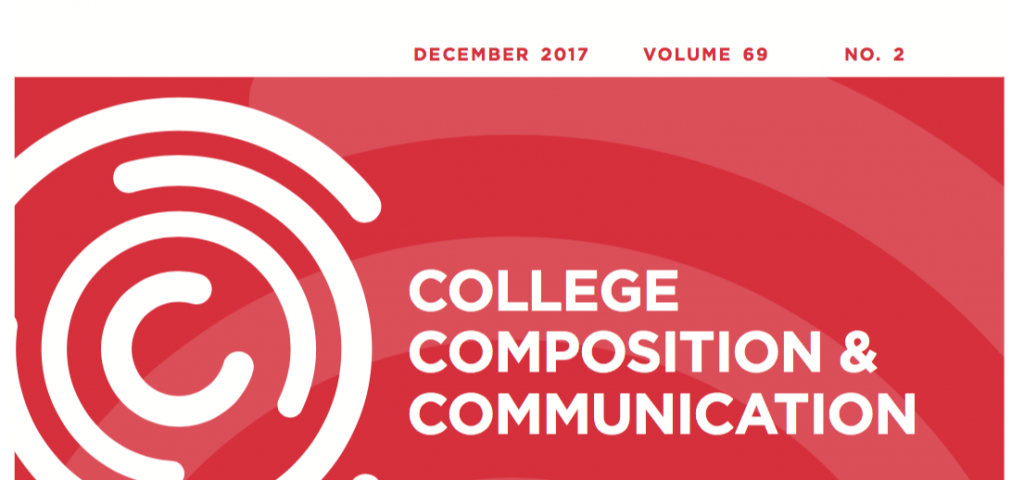This post is written by member Jens Lloyd, editorial assistant for College Composition and Communication.
College Composition and Communication publishes scholarship in rhetoric and composition studies that supports college teachers in reflecting on and improving their practices in teaching writing. Our December 2017 issue, available online and in print, offers two distinctive historical case studies, two stimulating write-ups of classroom-based research, and a potent example of collaborative institutional critique. We hope you relish these final CCC offerings of 2017.
The first two articles demonstrate the field’s evolving commitment to archival research. Pamela VanHaitsma highlights the importance of extracurricular literacy development in her analysis of an epistolary correspondence between two nineteenth-century African American women. VanHaitsma explores the many complex forces—from the social and political to the personal and romantic—that motivate the self-education of writers and rhetors. Sarah Klotz challenges readers to confront “the imperial underpinnings of writing education” in her study of materials associated with the Carlisle Indian Industrial School. Klotz draws our attention not to prominent individuals who wrote about their experiences after the fact, but to students who, in the midst of their schooling, resisted the pedagogical regime to which they were subjected.
Shifting the focus to classroom-based research, the next two articles challenge some of the taken-for-granted assumptions that undergird writing instruction. Bonnie J. Williams-Farrier reports on findings from her research into how students successfully use features of African American Verbal Tradition in academic writing. Her article, which is full of specific examples, goes a long way in helping us think more capaciously about the rhetorical resources that students bring with them to college writing tasks. Tara Wood aims to “productively reshape” perceptions of time in writing classrooms by sharing insights from her research involving student writers with disabilities. Troubling normative perceptions of time that are reinforced by common aspects of writing instruction, Wood advances crip time, a term derived from disability studies, as an alternative framework for (re)setting temporal expectations.
The final article in our December issue finds Tyler S. Branson, James Chase Sanchez, Sarah Ruffing Robbins, and Catherine M. Wehlburg reflecting on the challenges and benefits of a large-scale assessment project. “Our collaboration,” they write, “fostered a deep intellectual exchange, strengthening each round of analysis and opening possibilities for future work.” The authors conclude by sharing strategies that are sure to be of interest to administrators and instructors in a variety of institutional contexts.
The December issue also features Linda Adler-Kassner’s chair’s address from CCCC 2017, as well as Adler-Kassner’s chair’s letter and Jessie L. Moore’s secretary’s report.
In the coming weeks, we anticipate that some of our December authors will be featured in our podcast series. Check out these interviews for additional insights into the scholarship published in CCC. We welcome feedback and questions about the journal (and our podcasts series!) at ccceditors@gmail.com.
Jens Lloyd is a PhD candidate at UC Irvine.

